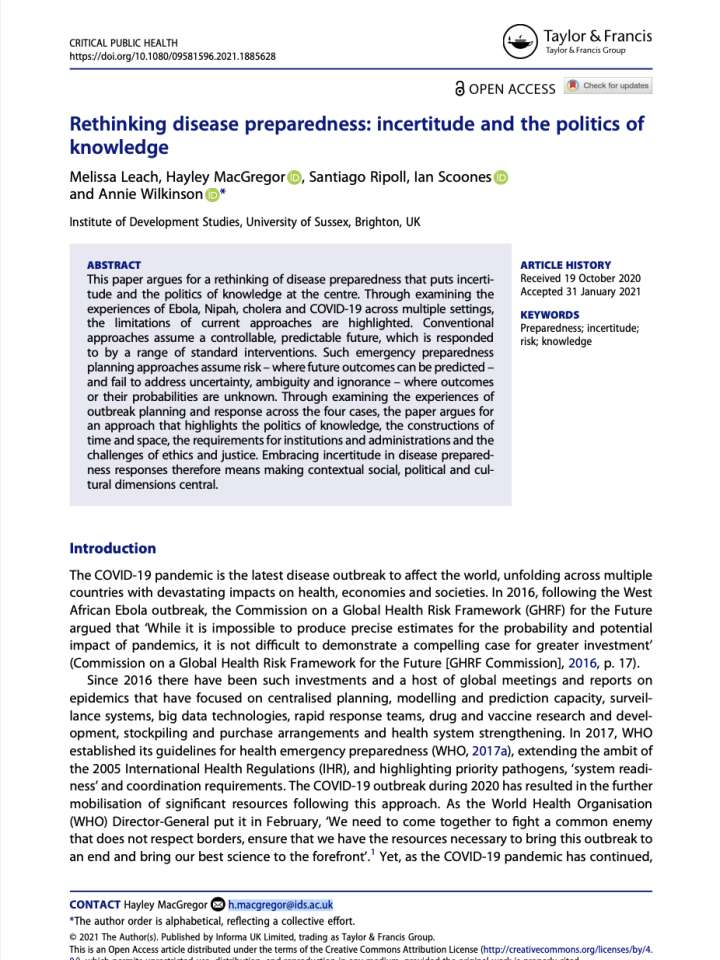Rethinking disease preparedness: Incertitude and the politics of knowledge
This paper argues for a rethinking of disease preparedness that puts incertitude and the politics of knowledge at the centre. Through examining the experiences of Ebola, Nipah, cholera and COVID-19 across multiple settings, the limitations of current approaches are highlighted. Conventional approaches assume a controllable, predictable future, which is responded to by a range of standard interventions. Such emergency preparedness planning approaches assume risk – where future outcomes can be predicted – and fail to address uncertainty, ambiguity and ignorance – where outcomes for their probabilities are unknown.
The paper argues for an approach that highlights the politics of knowledge, the constructions of time and space, the requirements for institutions and administrations and the challenges of ethics and justice, through examining the experiences of outbreak planning and response across the four cases. Embracing incertitude in disease preparedness responses therefore means making contextual social, political and cultural dimensions central.
Explore further
